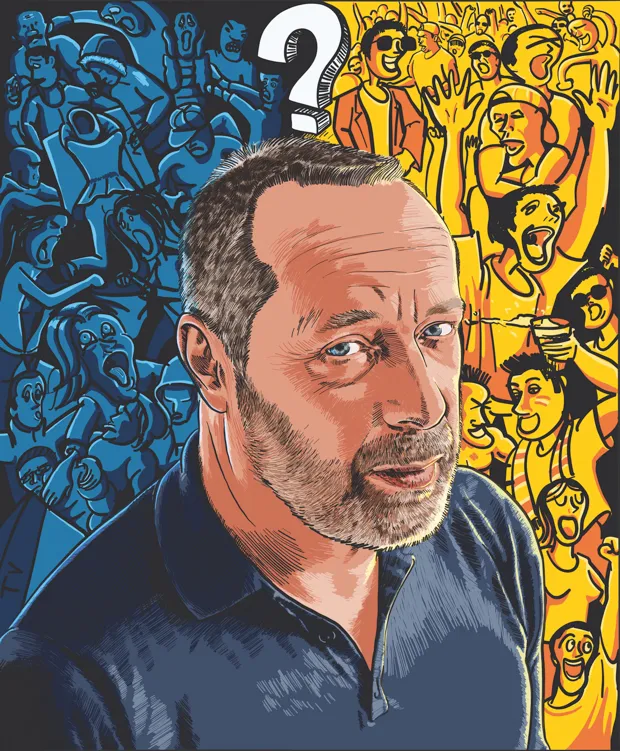How did you become interested in the study of crowds?
When I studied, psychology was influenced by the Holocaust. It still is. My family is Jewish. My father fled Poland. Suddenly, questions of how we behave in groups stopped being an intellectual exercise and started to be something that mattered. It came alive for me.
Does a ‘mob mentality’ really exist?
For a long time, crowds were viewed as predominantly negative, as you lose your identity, morality and sense of control. But what we’ve found is the opposite. People don’t lose their identity. They shift to a shared identity where values and goals of the group are prioritised. Certain groups – like the Nazis – have toxic values and goals, so Nazi crowds are toxic. But shared identity can lead to intimacy, respect and support, and provides the basis for people to work together. It can be incredibly empowering.
Power to the people!
Exactly! The civil rights movement challenged racism. The women’s movement challenged sexism. Stonewall challenged discrimination against gay people. Crowds enable disadvantaged individuals to challenge injustice. People tell you that some of the most meaningful moments in their lives were as part of a crowd when they felt they were making a difference.

How? I felt unwell when I rode a tube with my face in a man’s armpit…
We’ve studied people attending the world’s biggest pilgrimage, Prayag Magh Mela, where up to 100 million people come together once every 12 years. It’s noisy and crowded, with only a rudimentary sewage system, yet people talk about serenity and bliss. There’s a sense of control and connection, which decreases stress levels. We’ve found that it’s good for mental and physical health.
So why do I find the January sales so traumatic?
Because there are different types of crowd. In psychological crowds, we feel this shared sense of purpose. In physical crowds, we have no sense of connection. Sales crowds are physical crowds. No one likes being crushed up next to people they have no connection with.
Do you like the sales?
They are awful. We did a virtual reality simulation of a fire at King’s Cross underground station. We told some people they were coming back from a music concert, and others they were returning from shopping at the sales. The concert-goers helped one another and escaped more quickly, compared to the shoppers who didn’t work together and were less efficient at escaping. Consumerisation sets us up against one another, so everyone is potential competition. I go to great lengths to avoid physical crowds.
So avoid the physical crowds but embrace the psychological ones?
Exactly.
Follow Science Focus onTwitter,Facebook, Instagramand Flipboard